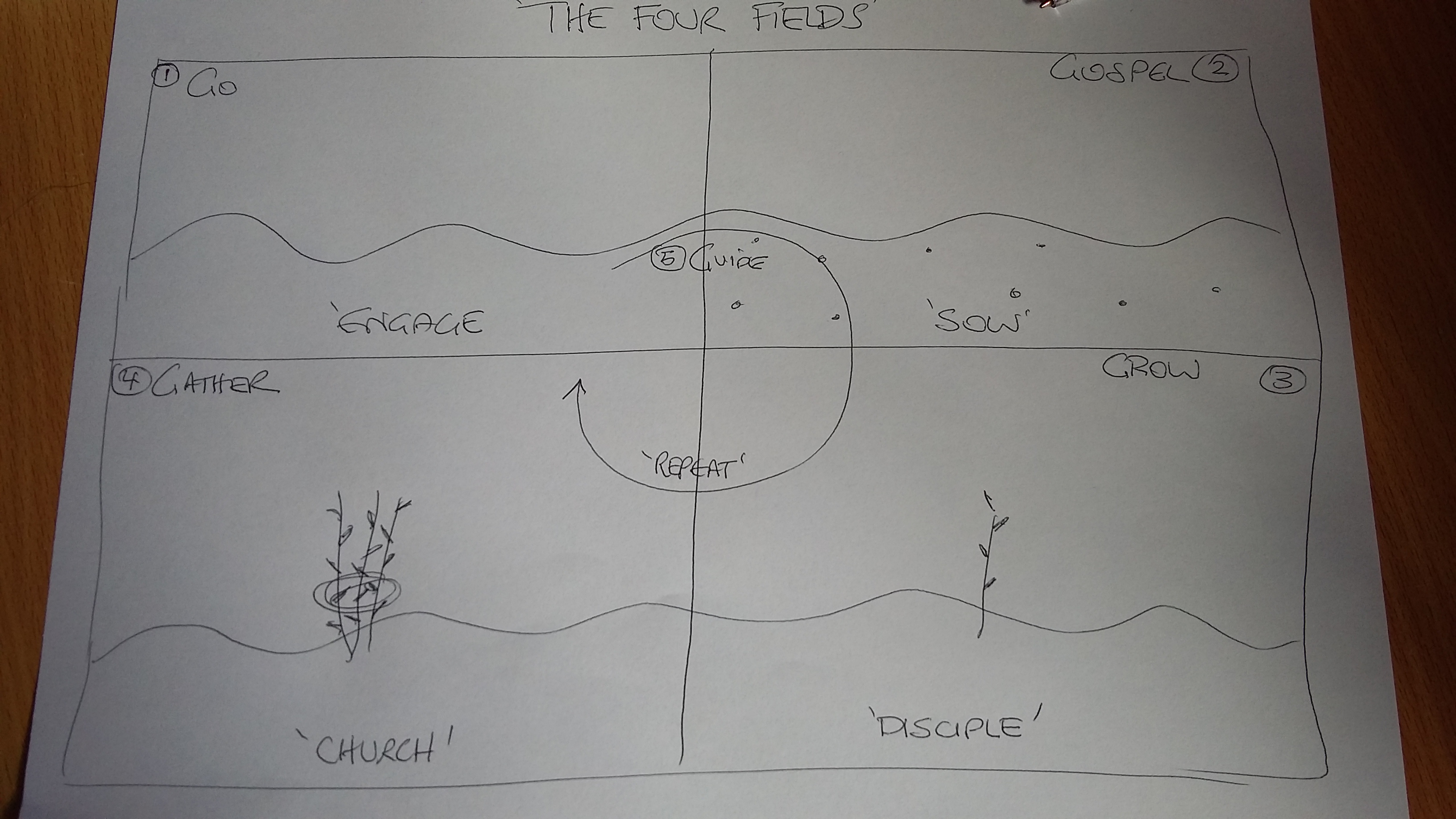
28 Jan, 2016 The Four Fields – Part IV (What is the gospel seed actually made of?)
Last time I was sharing with you thoughts about ‘Sowing’ out of ‘The Four Fields’ presentation given to me late last year. Let me carry on with some more thoughts on sowing. If you have not read the earlier postings, please do so in order to get context to the following.
Looking at Mark 4:3
Jesus taught in Mark 4:3 that the sower went out to sow… Jesus explains that the seed that is sown is the Word of God (4:14). In the story the soil changes, never the seed. The principle here is that even when we are sowing God’s Word into others, the return will differ, ranging from rejection to partial acceptance; from mediocre belief to white hot commitment. We must be careful to sow the right seed, the seed that can produce a potential bumper harvest. What is that seed?
What is the Gospel?
The seed that promised dramatic harvest in the right environments is God’s Word. What is God’s Word? God’s revealed will as presented in ‘The Gospel’. What is ‘The Gospel’ you may ask? This is a critical question and one that deserves time to argue and explain (though we will touch on it very briefly here). Suffice it to say, if we are not sowing the right seed, we cannot be expecting the right harvest. We may be faithful in seed sowing but never see the all important harvest, because we are sowing the wrong seeds.
Sproul Speaks
Let me take my reminding moments with you to give an overview of the Gospel as succinctly shared by R.C. Sproul…
“There is no greater message to be heard than that which we call the gospel. But as important as that is, it is often given to massive distortions or over simplifications. People think they’re preaching the gospel to you when they tell you, ‘you can have a purpose to your life’, or that ‘you can have meaning to your life’, or that ‘you can have a personal relationship with Jesus.’ All of those things are true, and they’re all important, but they don’t get to the heart of the gospel.
The gospel is called the ‘good news’ because it addresses the most serious problem that you and I have as human beings, and that problem is simply this: God is holy and He is just, and I’m not. And at the end of my life, I’m going to stand before a just and holy God, and I’ll be judged. And I’ll be judged either on the basis of my own righteousness–or lack of it–or the righteousness of another. The good news of the gospel is that Jesus lived a life of perfect righteousness, of perfect obedience to God, not for His own well being but for His people. He has done for me what I couldn’t possibly do for myself. But not only has He lived that life of perfect obedience, He offered Himself as a perfect sacrifice to satisfy the justice and the righteousness of God.
The great misconception in our day is this: that God isn’t concerned to protect His own integrity. He’s not a kind of wishy-washy deity, who just waves a wand of forgiveness over everybody. No. For God to forgive you is a very costly matter. It cost the sacrifice of His own Son. So valuable was that sacrifice that God pronounced it valuable by raising Him from the dead–so that Christ died for us, He was raised for our justification. So the gospel is something objective. It is the message of who Jesus is and what He did. And it also has a subjective dimension. How are the benefits of Jesus subjectively appropriated to us? How do I get it? The Bible makes it clear that we are justified not by our works, not by our efforts, not by our deeds, but by faith–and by faith alone. The only way you can receive the benefit of Christ’s life and death is by putting your trust in Him–and in Him alone. You do that, you’re declared just by God, you’re adopted into His family, you’re forgiven of all of your sins, and you have begun your pilgrimage for eternity.”
…back to me.
I break into this clear presentation (by one of today’s great teachers) to respectfully remind of the place of repentance in the Gospel presentation. I would also argue that the ‘Eternal Life’ we get in salvation is the relationship with God and not just deliverance from Hell when we die.
To see an excellent Gospel presentation modelled watch Dave Mann at these two links.
https://alltogether.co.nz/portfolio_page/4-what-is-the-gospel/
https://alltogether.co.nz/portfolio_page/5-how-to-share-the-gospel/
Bringing this home
Taking the time to equip your people to be sharing the right seed, is increasing the potential for a real harvest, 30 fold, 60 fold, even 100 hundred fold. It is time well spent modelling gospel presentation from the pulpit. For the sake of the waiting harvest, sow the right seed. For the tapping into an unclaimed generation, sow the right seed. For the empowering of your people for reproduction, sow the right seed.





